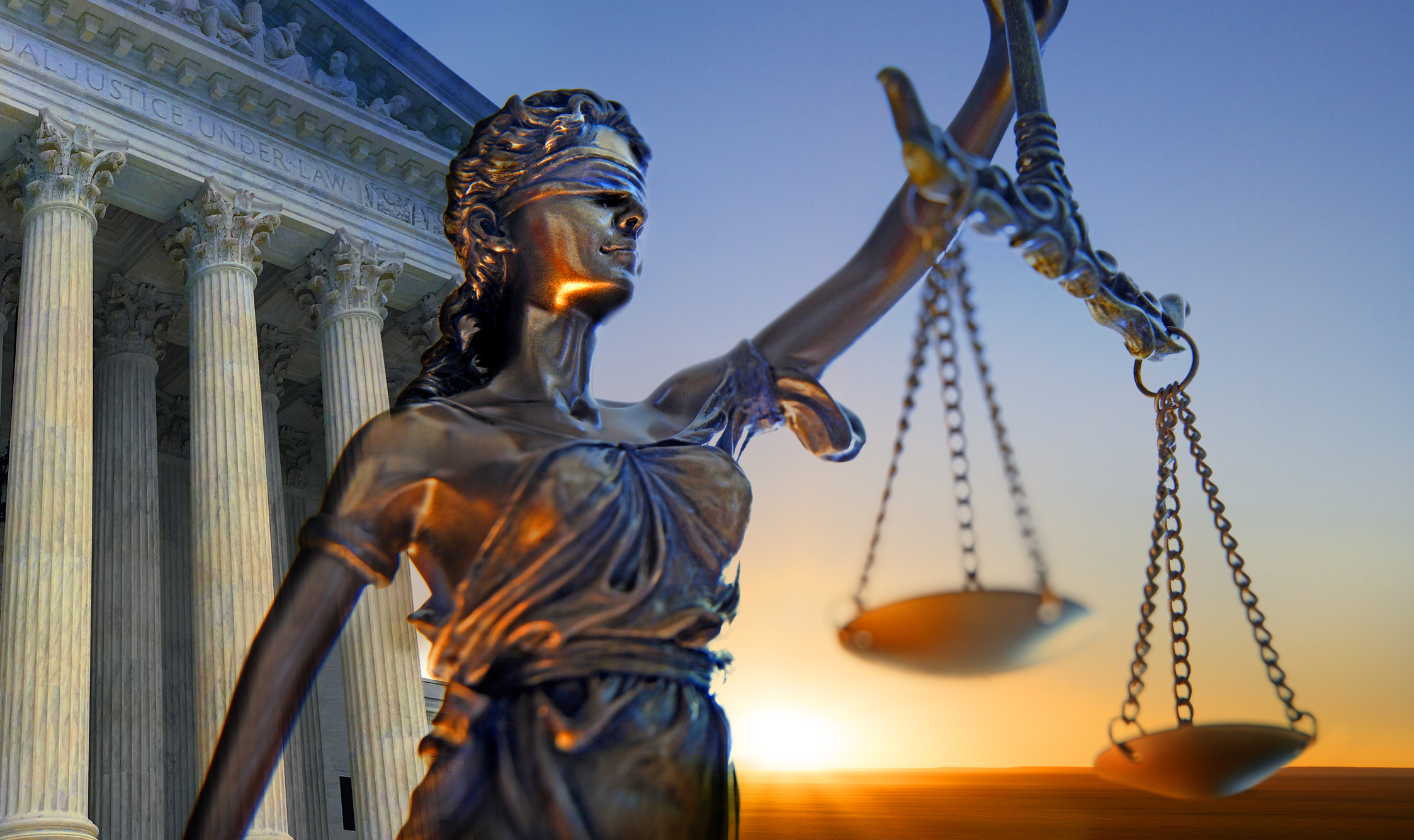“In a Humanities and Social Sciences project, we learnt about the principles of justice that uphold Australia’s legal system, such as the presumption of innocence, an impartial judiciary, or the right to legal representation. I studied the case of “State of WA vs Gibson”, and analysed how these principles were both upheld and violated in this case. After writing an essay on the topic, we were required to incorporate feedback and edit the essay so that it was fit for online publication. This essay is the end result of that editing process. It demonstrates my ability to take feedback, and to refine a piece of written work to produce a professional result.”
To what extent does the Australian legal system uphold justice?
The Australian judicial system is among the most efficient, most developed legal structures in the world. However, there have been cases where justice is not upheld. To prevent such cases, our legal system uses a set of principles to guide their procedures to ensure justice is achieved. Yet, sometimes these principles of justice are compromised, which prevents justice from being achieved. No judicial system is perfect, but the absence of justice can have unfair consequences on real people and their lives. One of the cases where justice was compromised was the “State of WA vs Gibson”, where three main principles of justice were compromised. These principles were the right to equal treatment before the law, the right to innocence until proven guilty and the right to silence. Some principles were upheld, namely the impartial judge/jury and right to appeal, which admittedly helped to eventually restore justice. Nevertheless, this does not fix the fact that in this legal case, the Australian legal system upheld justice to a very low extent; an extent so low that an innocent man was sentenced to imprisonment for 7 ½ years.
https://www.abc.net.au/news/2017-04-12/gene-gibson-josh-warneke-manslaughter-conviction-quashed-appeal/8436550
The investigation began on the 26th February 2010 when a young man named Josh Warneke was found dead on the side of a road in Broome. The autopsy revealed that he had died of brain injury, which raised suspicions that he had been assaulted. For over two years, the police were unable to find a lead until they interviewed an Indigenous man named Gene Gibson. Gibson had a cognitive impairment and he had a very basic understanding of English as his first language was Pintupi. Despite the police knowing about this, he was NOT provided an interpreter for the interview. When the police were finally forced to give him one, they gave Gibson an interpreter who spoke a different language to him and therefore could not be used. They continued to force Gibson to answer questions, even though the interview was voluntary. He was arrested for making a single contradictory statement. During a second interview, false testimonies were used against him to make him “confess”. When consulting legal advice, he was finally persuaded to plead guilty. He was sentenced to 7 and a ½ years imprisonment. Despite his appeal and release in 2017, it is clear that he suffered unfairly under Australia’s legal system, because three principles of justice were compromised.
Josh Warneke, the victim.

Gene Gibson was coerced into pleading guilty for a crime he didn’t commit.
The first compromised principle is equal treatment before the law. It is the right of the accused to receive fair treatment, free from any discrimination of their race, gender or disability. This is important as it means everyone receives the same opportunity to be deemed not guilty and receive a fair trial. However, Gene Gibson did not receive equal treatment; he was discriminated by his race. This was evident when he was not provided access to an interpreter because the police did not care about his requirements. This meant that he could not understand what was being said to him and the police could not understand what he was saying. His cognitive impairment also meant that he was easily confused and found it difficult to understand judicial procedures. The police did not provide him impairment support to help him through the interview. This injustice is known as “coercion of the suspect”, which can lead to the undermining of a principle. In this way, the police were not treating him equally, which prevented justice from being upheld.

How could have Gibson possibly understood anything without a proper interpreter? This is not equal treatment before the law.
The right to be innocent until proven guilty is when the accused cannot be under any form of fault until they are proven guilty by the prosecution. This protects the defendant from having the responsibility to prove that they are not guilty (It wouldn’t be fair if someone could accuse you of literally anything, and YOU had to prove you were innocent). Despite this being a fundamental concept in most legal systems, the police treated Gibson as if he was guilty. This is evident when they forced him to answer questions, and forced him to undertake the voluntary interview. They also used false witness statements against him. This meant that they believed that he was definitely guilty, and were trying complex methods to get him to confess. Furthermore, his lawyer convinced him to plead guilty to receive a “light” sentence, showing that the lawyer didn’t believe Gibson could be found innocent. All the above examples are defined as corruption, defined as when correct legal procedures are not followed. Consequently, there was no chance of justice being upheld, as corruption had damaged any hope of a trial even taking happening in the place.
You are not being treated as innocent if your very own lawyer believes you are guilty.
The right to silence is the right for the accused to not speak throughout an investigation and trial. This is important as it reserves people the right to speak when they want to, and it protects people who are stressed from potentially saying things that might contradict themselves. Despite this being one of the first things police say during an arrest, in Gibson’s situation the police actually forced him to answer questions during the voluntary interviews. Gibson’s legal advisor even told the interrogator that Gibson was not to take part in interviews, but the interrogator simply ignored the statement. At one point, due to his basic English, he accidentally contradicted himself. This one slip-up raised the suspicions of the heedless interrogator, which led to his arrest. Gibson’s right to silence was clearly violated by the police, and it had serious consequences on the outcome of the investigation.

In movies, you might have seen police shouting “you have the right to remain silent”. But how would you feel if they FORCED you to speak?
In spite of this, some principles of justice were upheld, which was the reason why Gibson was eventually released. One of the major principles that allowed Gibson protest was the right to appeal. This is the right for a party to take a case to a higher court if they are unhappy with the verdict that initially made. This is important as it provides opportunities to correct and resolve verdicts where justice was not served. While in prison, Gibson realised that he had been mistreated. He used his right to appeal, and the original decision was reviewed by a judge in the Supreme Court. The decision was overturned and he was released and given a $1.3 million remedy to compensate for the injustice that he suffered.

Gene Gibson walking free after his appeal.
Another one of the major principles of justice is the right to an impartial judge and jury, which is the right for both judicial parties to be heard in front of a jury or sentenced by a judge that has no preferences or affiliations to any side and decides without bias. This is important to maintain equal treatment before the law and ensure the accused receives the right verdict or sentence. It is safe to say that the judge who sentenced Gibson gave him right sentence based on the information the judge was given (which did not include the injustices Gibson endured). Additionally, the judge in Gibson’s appeal was unbiased, as they overturned Gibson’s sentence and provided compensation for his suffering.
There are various ways we can prevent atrocities like this from occurring. Firstly, there should also be no discrimination whatsoever as major factor can affect cases is discrimination. In Gibson’s case, it was racial and mental ability discrimination that compromised justice. This can prove difficult to remove entirely as it can even happen without actual intent. However, it is crucial in ensuring that everyone has equal treatment before the law. Secondly, we can ensure that corruption does not occur anywhere in the judiciary. For example, the police forced people to sign witness statements to use against Gibson, which is not allowed. If we prevent this from occurring, we can stop a lot of unethical and dishonest behaviour from compromising the principles of justice. Finally, legal aid must be provided at any cost for the people that need it. To make sure that this is carried out, laws must be created, detailing a sanction in any cases where legal aid is not provided to any person in a legal case. These are just few ways that have been suggested to help ensure justice is upheld, as it is essential that we continue to improve our legal system.

Lady Justice, with a blindfold over her eyes, represents how a legal system should be: impartial and free from corruption and coercion.
State of WA vs Gene Gibson is leading example of how the Australian legal system isn’t always able to uphold justice. Gene Gibson had to suffer inequality before the law, being considered guilty before even proven so, and being denied his right to silence. The key issues causes of this injustice was the lack of an interpreter, corruption within the police and coercion of the defendant, Gene Gibson. This investigation does not represent what our country stands for! Therefore, we must strive to eradicate as many of these issues as we can. In conclusion, while our legal system is better than most systems in the world, there are always ways we can improve it to ensure justice is always served in future.